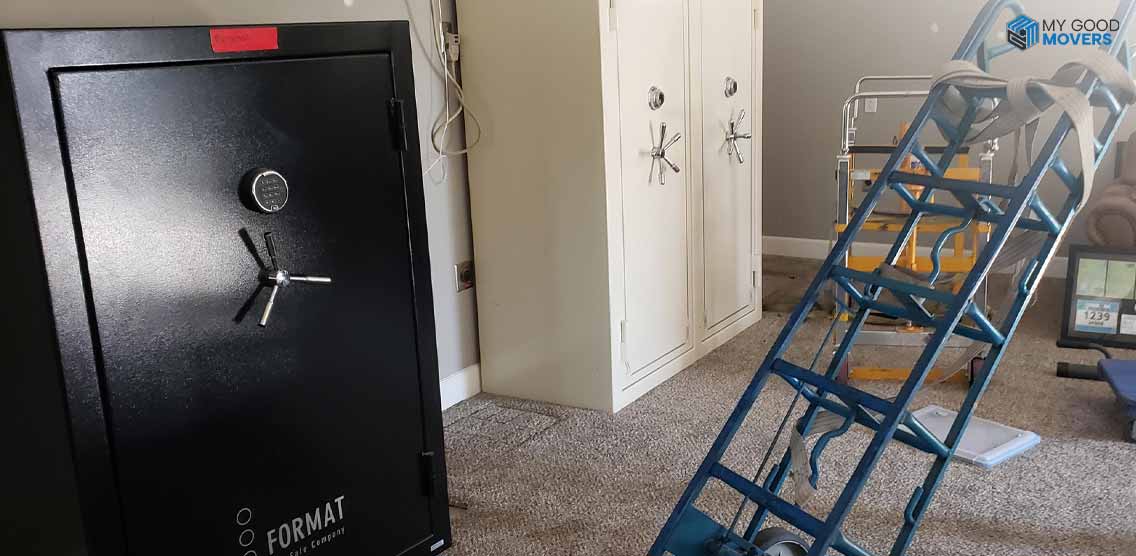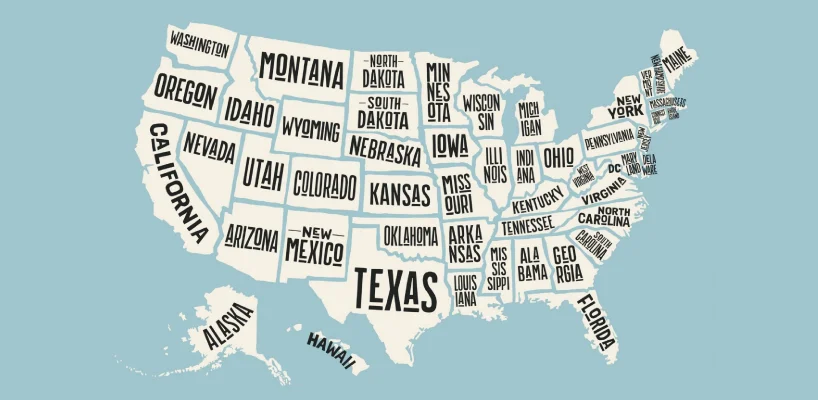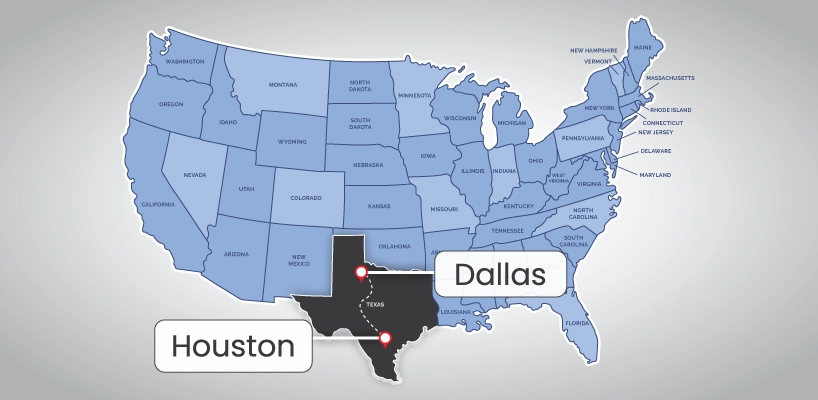When is the best time to move? One might, for the sake of answering this question, spend hours on end in search of the answer in the endless abyss of the internet.
Did you know that nearly 31 million Americans move yearly, with almost half of those relocations happening during the summer months? While summer may seem like the ideal time for a move, it also comes with its own set of challenges—higher moving costs, limited availability of movers, and sweltering heat.
So, how do you balance the convenience of warm weather with the potential downsides? Is there a better time to pack up and relocate? Since we have already been there and done that, we took it upon ourselves to put an end to this so-called mystery.
Without any delay, let's take a look at the best strategies for timing your move perfectly.
How Seasonal Changes Impact the Best Time to Move
Although there is no hard and fast rule for when is the best time to move, the time of year you move can impact how easy and affordable the process is.
This is why understanding how each season affects your move can help you make the best choice.
- Is Spring the Best Time to Move? Pros and Cons
Spring is often seen as a great time to move because of its mild weather and fresh surroundings. The comfortable temperatures can make moving easier, and the season's renewal can feel like a fresh start. However, spring is also a busy time for moving, with many families trying to move before summer. This high demand can lead to higher prices and more competition for moving services.
Who Should Move in Spring: Families with children who prefer to settle before summer vacation or anyone looking for a fresh start in a pleasant environment.
Having to pack for a family means you will probably end up with a lot of stuff you don’t need. This is why read Where, How, and Why Should You Donate Clothes- To give your extra belongings to a good cause.
Who Should Avoid Moving in Spring: Those who want to avoid high prices and competition or individuals who have flexible schedules and can wait for a less busy time.
- Moving in the Summer: What You Need to Know
Summer is the busiest season for moving, with many people taking advantage of the school break and warm weather. While summer makes it easier to move, it also has its challenges. Moving companies are in high demand, which can increase prices and limit availability. Plus, the heat can make moving more tiring and uncomfortable, so it's important to stay cool and hydrated.
Who Should Move in Summer: Families with school-aged children who need to move during the summer break or anyone who prefers moving in warm weather.
Who Should Avoid Moving in Summer: People who want to avoid high moving costs, those who are sensitive to heat, or individuals who have flexible schedules and can choose a less busy time.
Pro Tip: You can find a list of the best affordable moving companies even in the peak moving season here: Best Cheap Moving Companies of 2025
- Why Fall Might Be the Ideal Season to Move
Fall could be a good time to move because the weather is cooler, and there’s less competition for moving services. With fewer people moving in the fall, you might find better prices and more flexible scheduling. However, fall weather can be unpredictable, with rain or early snow potentially causing problems.
Who Should Move in Fall: People looking for lower moving costs and more flexible scheduling or prefer cooler weather.
Who Should Avoid Moving in Fall: Those who are concerned about unpredictable weather or who need to move during a peak season like summer.
- Winter Moving Tips: Is It Worth the Risk?
Winter is the least popular time to move, but it has its advantages. Moving companies often offer lower rates during the winter, and you may have more flexibility in choosing your move date. On the downside, winter weather can be tough, with ice and snow creating challenges. To make a winter move easier, plan ahead, check the weather, and make sure your new home is ready for the cold.
Who Should Move in Winter: Budget-conscious individuals looking for lower moving costs or those who can handle cold weather and potential delays.
Who Should Avoid Moving in Winter: People who are not prepared for winter conditions or those who prefer to avoid the risks of ice and snow.

Around June 21st, the Northern Hemisphere experiences the longest day of the year, known as the summer solstice. Conversely, around December 21st, the winter solstice brings the shortest day of the year.
Monthly Moving Tips: When is the Best Month to Move?
Timing is everything, and choosing the right month to move can make all the difference between a smooth sail and a bumpy ride.
It doesn’t matter if you are choosing the best long-distance or cross-country companies; the time of the month you choose to move will impact your relocation.
- Should You Move at the Beginning or End of the Month?
| Time | Pros | Cons | Who Should Move | Who Should Avoid Moving |
|---|---|---|---|---|
| Beginning of the Month | Aligns with new leases, convenient for new starts | Higher demand, higher costs, limited availability | Those whose lease or new home starts at this time | Budget-conscious individuals, those avoiding high demand |
| End of the Month | Matches lease end dates, potentially more flexible timing | Busy period, higher costs, more competition | People moving from leases ending at this time | Those avoiding high demand and scheduling conflicts |
- Mid-Month Moving: Why It Could Save You Money
| Time | Pros | Cons | Who Should Move | Who Should Avoid Moving |
|---|---|---|---|---|
| Mid-Month | Lower costs, better availability, less competition | Not aligned with some lease or job start dates | Budget-conscious individuals, those needing flexibility | Those with specific start dates or deadlines |
Choosing the Best Day of the Week to Move
When it comes to moving, picking the right day of the week can be the secret ingredient for a stress-free move.
Here’s how your choice of moving day can impact costs, convenience, and overall ease.
- Why Moving on a Weekday Might Be Your Best Option
Weekdays can be a great choice for moving due to lower demand for moving services. With fewer people moving during the week, you might find better availability and lower prices. Additionally, moving companies often have more flexible schedules on weekdays, which can help streamline the process.
Who Should Move on a Weekday: Those looking to save money, secure better scheduling, or avoid weekend crowds.
Who Should Avoid Moving on a Weekday: People with busy work schedules or those who need to align their move with weekend availability.

At any given moment, just over half of the Earth is experiencing daylight.
- Weekend Moves: The Pros and Cons You Need to Know
Moving on a weekend can be convenient, especially if you work a typical Monday-to-Friday job. Weekends provide more time to manage the move without the pressures of a workday. However, this convenience comes with drawbacks. Weekends are the busiest times for moving companies, leading to higher costs and potential scheduling conflicts.
Who Should Move on a Weekend: Those who prefer to avoid taking time off work or have more free time on weekends.
Who Should Avoid Moving on a Weekend: Budget-conscious individuals or those who want to avoid the busy, high-demand periods of moving.
DIY Moving vs. Professional Movers: Which is Best?
- When is the Best Time for a DIY Move?
| Best Time | Pros | Cons | Who Should Choose | Tip |
|---|---|---|---|---|
| Off-Peak Seasons | Lower costs for renting equipment, less competition | Weather can be unpredictable, and fewer moving companies are available | Budget-conscious movers, those who can handle tasks themselves | Plan early to secure equipment and avoid peak season pricing. |
| Weekdays | More availability for rental trucks, less crowded | Might conflict with work schedules | Those with flexible work hours, people who can take time off | Book your rental truck and moving help in advance to ensure availability. |
- Best Time of Year to Hire Professional Movers
| Best Time | Pros | Cons | Who Should Choose | Tip |
|---|---|---|---|---|
| Fall | Lower demand, often better rates | Weather can be unpredictable | Those seeking cost savings and more scheduling flexibility | Schedule your move well in advance to take advantage of lower rates. |
| Winter | Less busy, potential for better deals | Harsh weather conditions, shorter daylight hours | Those who need professional help and can handle the cold weather | Check the weather forecast and ensure your new home is winter-ready. |
| Weekdays | More availability and potentially lower costs | May require taking time off work | Those with flexible schedules, busy professionals | Avoid peak weekend times by booking on a weekday to secure the best rates. |
Personal Factors to Consider When Deciding the Best Time to Move
- How School Schedules Affect the Best Time to Move with Kids.
Summer Breaks: Moving during summer break can avoid disrupting your child’s schooling and give them time to settle in before the new school year starts.
School Year: If you move during the school year, you'll need to handle transferring school records and help your child adjust to a new environment. But it can also mean a fresh start in the middle of the school year.
Special Programs: Plan your move around any special school programs or activities your kids are involved in to prevent missing out or causing extra stress.
- Timing Your Move Around Your Job Schedule
Work Projects: Avoid scheduling your move during busy work periods or when you have important projects. This helps to reduce stress and ensures you’re available for work responsibilities.
Vacation Time: Use your vacation time or personal days to move to make the transition smoother and avoid work-related stress.
Seasonal Peaks: If your job has busy seasonal peaks, plan your move for a time when things are quieter to minimize conflicts and stress.
- Planning Your Move Around Family and Personal Events
Holidays and Celebrations: Try not to move during major holidays or family events to ensure you don’t miss important gatherings and celebrations.
Medical Appointments: Schedule your move around any important medical appointments or treatments to avoid conflicts and ensure continuous care.
Personal Milestones: Consider any personal milestones, such as anniversaries or significant events, to ensure your move doesn't interfere with these special occasions.













































































































































 (239) 799–6077
(239) 799–6077